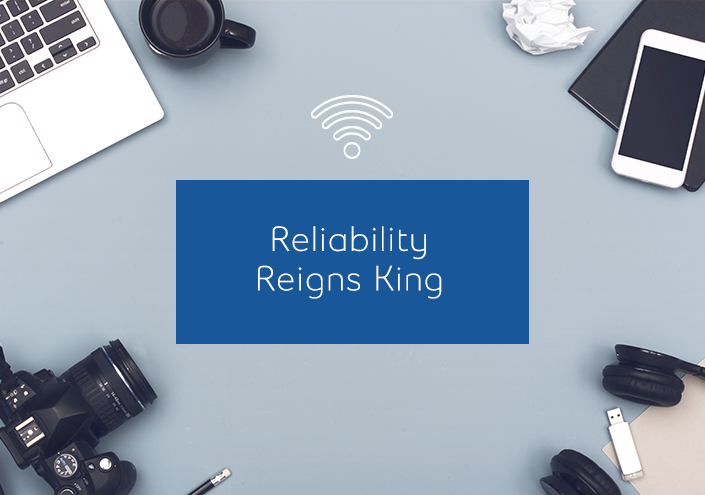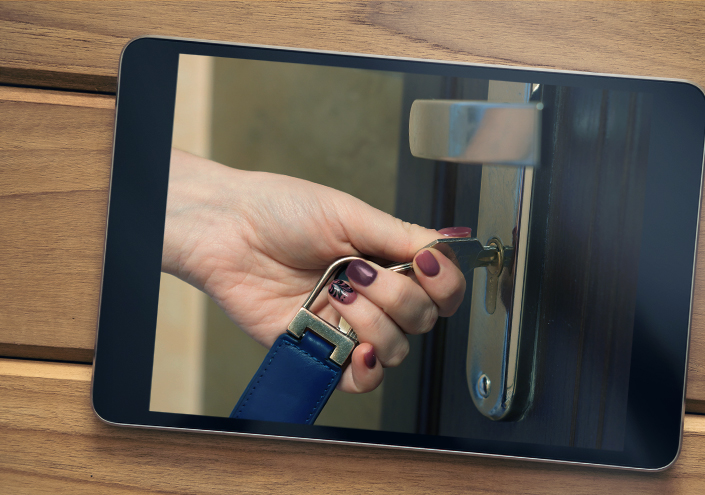How mobile does your business need to be?
How mobile does your business need to be?
January 31, 2019

There may never have been an innovation consumers have adopted faster than mobile technology. Most of us these days are ultra-dependent on our devices in our personal lives. We use Bluetooth in the car and post updates on our lives to social platforms as they happen, in real time.
More and more, people are taking those mobile behaviours to work with them, too – bringing their own devices on the job and expecting the same degree of connectivity and flexibility in accessing and sharing information.
As a small business owner, you want to make sure you and your team have the tools to work efficiently and in ways that are natural and productive. But just how much technology do you need? How mobile does your business really need to be? Ask yourself the following to help get clear about the specific needs of your business.
Where – and how – does your team work?
This might seem like an obvious question to start with. If you run a snowplow business, cater events or do in-person sales at customer locations, it’s pretty clear that your business is already mobile. You just need to know which technologies to use and how to get the most out of them. (We’ll get to that in a minute.)
But even if you have a single physical location, like a storefront or office where people stay in one place, you may want your team to have access to phones or tablets so they can quickly look up information and answer customers’ questions. In an office, maybe staff need to access certain files during meetings. Those workflows will help you determine the degree – and kind – of mobile connectivity you need.
The important thing is to think about how you actually work, because you want tools that will enable you to do what you do even better.
What do your customers expect?
This is becoming more and more important for businesses of all sizes. As people bring more mobility into their personal lives, they start to expect a certain kind of convenience and responsiveness from the companies they do business with.
This is true whether your customers are other businesses or individual consumers. For example, if you operate a linen pick-up and drop-off service for companies like dental offices or chiropractors, you might see those customers wanting different things from you than before – like a mobile app for their phones that lets them check when your drivers will be there in real time.
On the consumer side of things, if you run a coffee shop or a bar, you may want to offer Wi-Fi to guests. If you have a retail store, you may want your website to support mobile e-commerce.
What technologies could you consider?
The basics
The basic tools for mobility are smartphones, tablets
and laptops. Which ones you choose depends mainly on the tasks you have to perform: tablets are great for presenting visual information, laptops for when you need memory and computing power, and phones for instant communication by text, email, instant messaging or voice.
In some parts of the world, however, that’s changing. Businesses in countries that never had wired network access have jumped right to using smartphones for running virtually every aspect of their business. As more business applications like accounting software go into the cloud, smartphones can handle more and more sophisticated everyday tasks.
GPS
Companies that have teams on the go can get a lot of use out of GPS technology – not only for route planning and directions but also to track people and goods. GPS solutions also contribute to employee safety by providing a way of knowing where your people are at all times.
Satellite communications
Satellite phones and terminals can also be great backups for companies on the go, especially in remote locations or if you provide essential services. If yours is a business that can’t stop during severe weather – such as off-farm produce transport, livehaul, snowplowing or in-home personal health care – equipping your staff with satellite phones can help them stay connected to the business in any conditions.
Find the right fit for your business
The question for small businesses isn’t “should we be mobile?” but rather “how mobile should we be?” Whether you’re a team of one or many, have a fixed location or are on the road, mobile technology can help bring more efficiency to your processes and more productivity to your team.
You may also like...
Efficiency boosters: Tools to help your business run better
Learn moreWhat tech skills do you need to have as a business owner?
Learn moreThe five Ws of cybersecurity for small businesses
Learn moreHow to optimally price your products and services
Learn morePaying for clicks: Does it work?
Learn moreWhich technology is right for your business?
Learn moreHow to market your business cost-effectively
Learn MoreHow an Advanced Phone System Helps Small Businesses Succeed
Learn more5 Tips to Increase your sales
Learn moreWhich Internet speed works best for your business?
Learn moreReliability Reigns King (Reliability impact on small business)
Learn moreLandlocked by Landlines no More
Learn more5 Ways to Leverage Social Media
Learn moreTop Telco Mistake Small Businesses Make
Learn moreThe importance of online security for SMBs
Learn more













